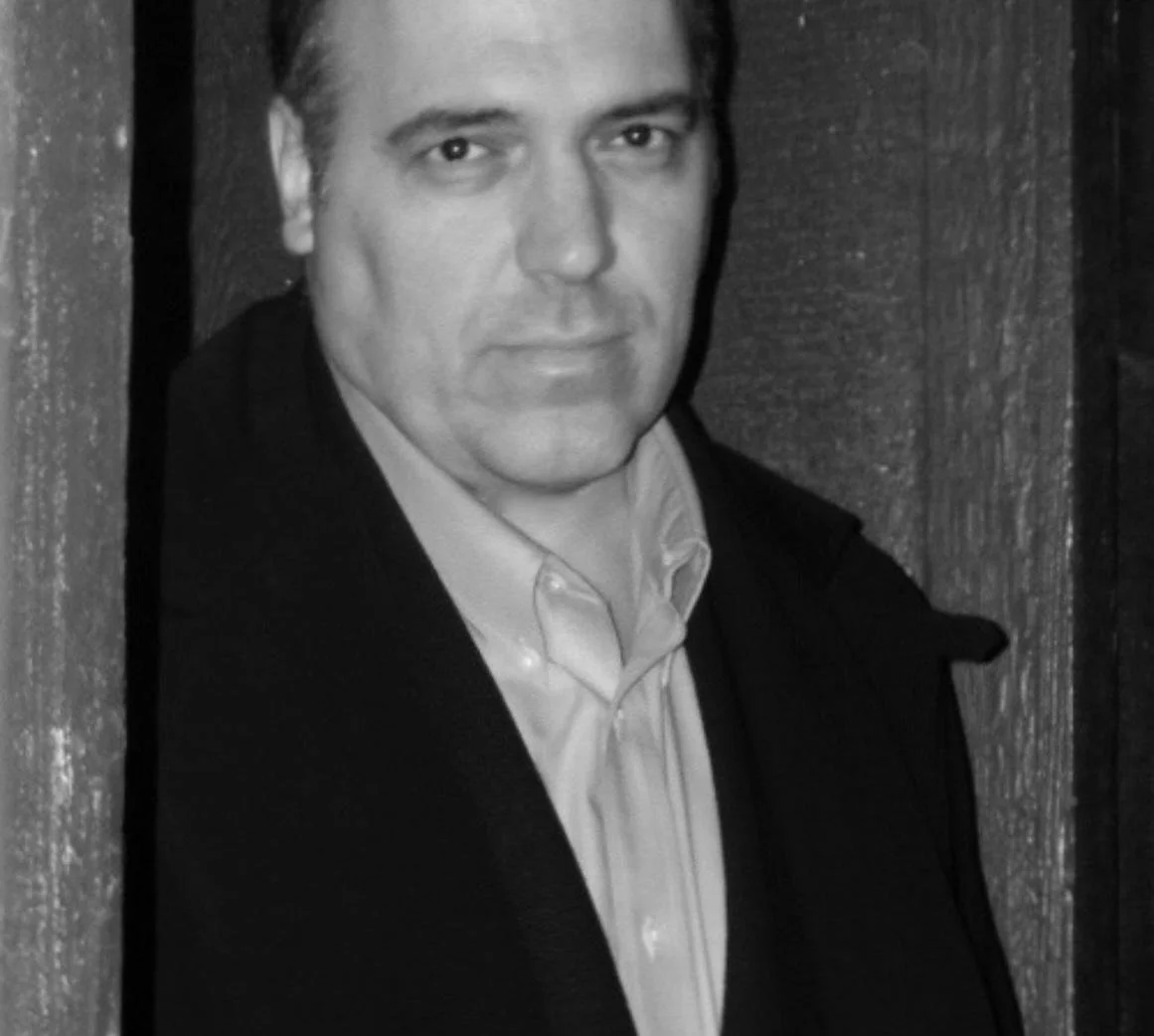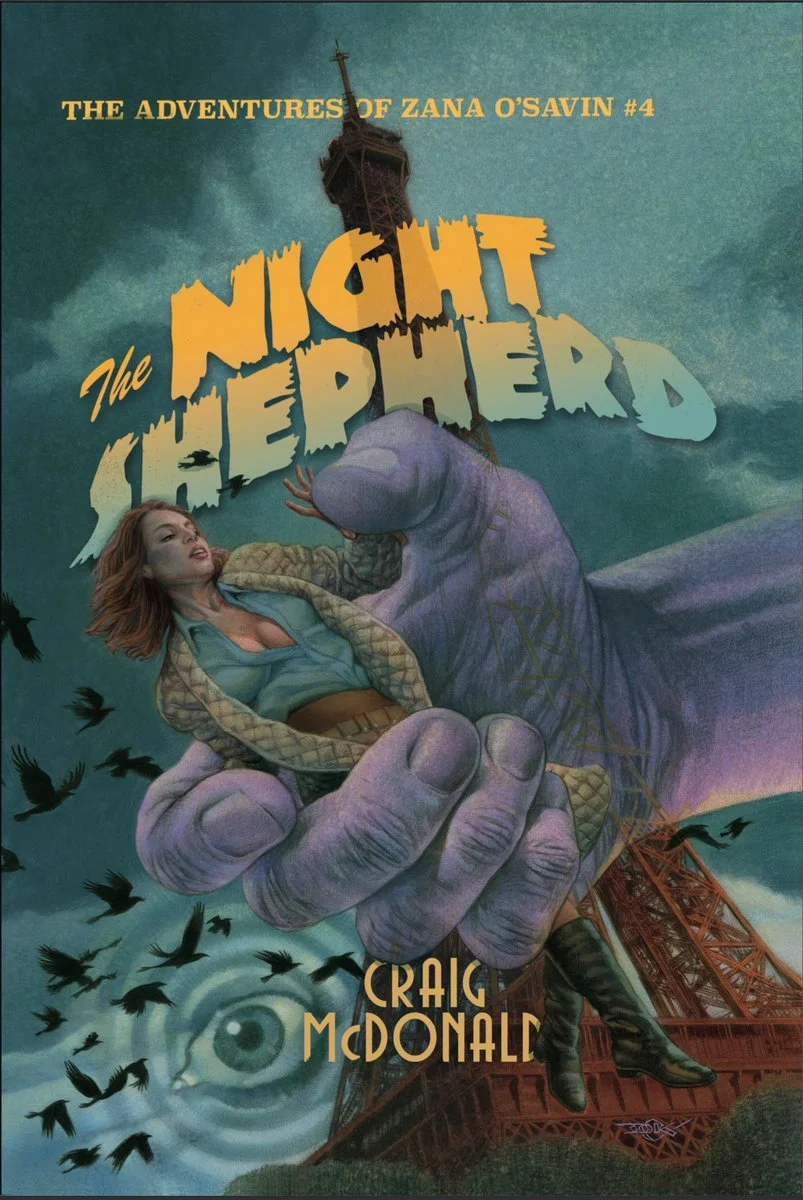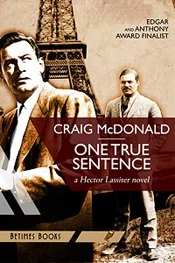For the first day of PulpFest, I’m happy to have a chance to chat with author Craig McDonald.
Craig McDonald is an award-winning journalist, communications specialist, and author of the acclaimed Hector Lassiter series. His debut novel, Head Games, was nominated for the Edgar, Anthony, Gumshoe, and Sélection du prix polar Saint-Maur en Poche in France for best first novel. More recently, Craig launched his Zana O’Savin series of literary thrillers in which classic pulp magazine heroes literally come to life. Craig serves as PulpFest’s assistant director of marketing. His primary responsibility is the PulpFest YouTube Channel. You can learn more about Craig’s Zana O’Savin, Hector Lassiter, and other novels on his website.
Hi Craig! Thanks for taking some time to chat.
Truly my privilege, Anthony. Thank you for the opportunity.
At Pulpfest this week, you’re debuting your fourth Zana O’Savin novel, The Night Shepherd. Tell us about who Zana is and what the series is all about.
Zana is a pastiche version of Doc Savage’s cousin Patricia Savage. The Zana O’Savin series is a kind of pulp magazine version of the Justice League Unlimited cartoon series in which pastiche versions of Pat and Doc, his aides, The Shadow, The Avenger, and public domain characters like the Domino Lady join forces. The distinction between this series and most other pulp pastiches is these classic heroes, in recognizable form, are moving in our time and world, and confronting many of the same challenges and threats we face. In the manner of much of my earlier fiction, there is also often a historical element or event informing each book.
What adventure is Zana embarking on in The Night Shepherd, if you can tell us anything without spoilers?
This novel involves a kind of suicide-murder cult called Nada, first introduced in my Hector Lassiter historical thriller, One True Sentence. That novel was set in 1924, when Paris was preparing to host the Summer Olympics. The new Zana is set in summer, 2024, when Paris is deep in the throes of hosting another series of Summer Games. Zana becomes the target of Nada’s cult-like leader, a sadistic hypnotist of considerable skill, with hidden ties to my pastiche version of The Shadow. There’s actually been considerable overlap of my two series, with Lester Dent and Walter B. Gibson featuring in various Lassiter novels and short stories, and Lassiter as on-page character in the first Zana, The Blood Ogre.
Obviously, you have a love of Doc Savage. What are your first memories of encountering Doc or other Pulp characters or magazines?
My grandfather was an iron worker in New York City during the Great Depression and an avid reader. He had a basement bookcase stuffed with men’s adventure paperbacks, and magazines. He knew Doc from back-when and gave me a paperback reprint of the second Doc Savage pulp, The Land of Terror. I was maybe seven or eight. It hooked me, and I skipped The Hardy Boys and similar fiction, leaping straight to pulp reprints and Ian Fleming’s James Bond novels. Doc paperback collecting was quickly followed by those featuring The Shadow and The Avenger. That Street & Smith trinity remains my favorite and primary pulp fascinations.
Who are some of your other literary/creative influences?
My master is Ernest Hemingway. Ian Fleming is another profound influence. I’ve also learned much from reading and interviewing a number of more contemporary authors, including James Crumley, James Sallis, James Ellroy, and the recently passed Ken Bruen, who connected me with my first agent and the eventual publisher of many of the Lassiters via Betimes Books, based in Ireland.
I would love to hear about your creative process. Are you a plotter, a pantser, a mix? How many drafts do you go through before bringing a book out?
I don’t think I really fit comfortably in either camp. I’m devoted to characterization and feel story should ideally advance through a kind of double-helix propulsion in which character drives plot and plot simultaneously evokes character. I always have an opening line, a character arc in mind, a closing line, and probably a few set pieces in between. I think what also makes it hard for me to declare an allegiance to either of the 2 “P’s” is that so much of what I write is historical fiction. That means I have certain historical mile markers I’m obligated to navigate toward, whether it be details or events tied to the Black Dahlia murder, or Orson Welles’ so-called “Panic Broadcast.” A certain amount of plotting is baked in, in that sense. I also embrace the Hemingway concept of reading everything previously written before resuming writing, so there is a perpetual revision process underway that ensures the first draft and final draft aren’t very far apart. I also typically use a method Kinky Friedman sold me on in which you write about three quarters of the book in sequence, jump to the end and compose the last chapter or two, then go back and fill in the gap.
You are also known for your Hector Lassiter series. Tell us about how you created Hector and about the series as a whole.
The Lassiter series consists of historical thrillers about a pulp novelist and Black Mask Magazine writer who becomes involved in historical crimes and menaces, while also interacting with notable people—most of them fellow authors or filmmakers—including Ernest Hemingway, Ian Fleming, and Orson Welles, among many others. Hector was created for a Mississippi Review short story contest called “High Pulp,” seeking a mixture of pulp-style writing with a literary undertow, which pretty well describes the dozen-plus novels and short stories about Hector that ensued, all of which have a certain literary and meta-textual edge, which is also true of the Zana O’Savin novels. The first novel was a finalist for The Edgar and Anthony awards and adapted as a graphic novel. The Lassiters have been published in about a dozen languages.
I’m curious about the level of research you did for the Lassiter books, since they are set in a very specific timeframe and include so many real people. What was that research process like, and did you learn anything surprising about the people you researched that affected the way you portrayed them?
All my novels are written to preoccupations with crimes or historical personages I’ve studied deeply and so I don’t really require much research; it’s more a matter of memory checking. With some “characters” who had a very distinctive speaking voice, say Orson Welles, or John Huston, I’d sometimes go back and watch old interviews to kind of pick up their cadence, word choices, etc. My version of Hemingway comes mostly from his letters, where his personality and “voice” were the most unguarded and so illuminating to me in shaping his very complex character.
Will there be further Hector Lassiter books, or is the series over?
Hector has made the odd cameo since the series ended (that first Zana novel, for instance), but it’s probably over. The idea was to have Hector age in real time, coming in with the twentieth century and more or less departing with it, in between making a study of an artist moving through so many stages and phases of fiction, film, and culture. I feel like I accomplished that, and the series stands as something very unusual and cohesive and so would hate to write a book that risks weakening or damaging the larger series in some way.
What do you have coming up after the release of The Night Shepherd? Any projects you can tease or talk about?
There will be at least a fifth Zana, which is coming together very quickly, currently called The Invisible Crusade. I’ve also had some discussions with the publisher of the Hector Lassiter series about another novel that was nearly published by Macmillan about 2009, when it was stalled by a novel covering similar territory by a certain sitcom actress turned author that ended up strangling my publishing deal. I’m prolific, and publishers tend to limit you to a book a year, so as a guy who has sometimes written three novels in a calendar year, I’ve got a lot of novels in dry dock, including a couple of trilogies.
You’re at Pulpfest this week. Will you be attending any other conventions where readers can chat with you in the near future?
I do a few here and there as I can fit them in. I hope to do many more this coming year.
Thanks again Craig!
Thank you, Anthony; it’s been a blast!
Readers, even though PulpFest started today, it is not too late to register and attend THE pulp magazine-focused convention in the Northeast and the other three conventions it hosts: FarmerCon (dedicated to the works of Philip Jose Farmer), ERBFest (dedicated to the works of Edgar Rice Burroughs) and DocCon (dedicated to all things Doc Savage related). Check out the Pulpfest website for registration and hotel information! Join us in Cranberry, PA this weekend, and meet Craig and most of the other folks I’ve interviewed in person.



